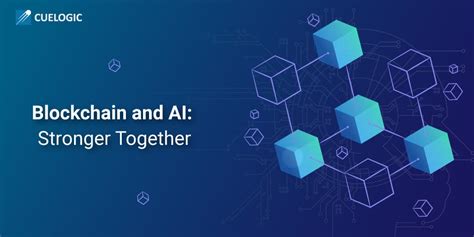AI in Blockchain: A Double-Edged Sword for Security
The Blockchain Technology has revolutionized the way we conduct transactions and store data, but its potential impact on security is a topic of great debate. Artificial Intelligence (AI) Plays a crucial role in various aspects of blockchain technology, from smart contract development to decentralized applications. However, as with any emerging technology, there are also concerns about AI’s potential security vulnerabilities.
The benefits of AI in Blockchain
Ai has been increased integrated into blockchain platforms to enhance their functionality and efficiency. Some of the key benefits of incorporating ai in blockchain include:
- Automated Smart Contract Development : AI-powered tools can assist Developers in Creating Smart Contracts that are more efficient, secure, and scalable.
- Predictive Analytics : AI Algorithms Can Analyze Large Datasets to Predict Market Trends, Detect Anomalies, and Identify Potential Security Risks.
- Decentralized Autonomous Organizations (Daos) : AI Enables The Creation of Daos, which can function as decentralized Governance Systems for Blockchain-Based Organizations.
The Security Risks of Ai in Blockchain
Despite Its Benefits, AI has also been linked to several security risks when integrated into Blockchain Technology:
- Value Chain Attacks : AI-powered bots and algorithms can be used to launch value chain attacks, such as price manipulation or data tampering, on the blockchain.
- Side Channels Attacks : AI algorithms can leak sensitive information about a blockchain’s internal working, compromising its security.
- Reputation Risks : AI-driven reputational attacks can compromise a blockchain-based organization’s reputation and credibility.
Real-World Examples of AI Security Risks
Several High-Profile Examples Have Highlighted The Security Risks Associated With AI In Blockchain:
- The Wannacry Ransomware Attack : In 2017, a global ransomware attack exploited Weaknesses in AI-powered malware to gain unauthorized access to cryptocurrency exchanges.
- The Equifax Data Breach : The Breach of Equifax’s Data Storage System Was linked to an AI-Driven Phishing Campaign That compromised User Credentials.
mitigating the risks of ai in blockchain
To mitigate the security risks associated with ai in blockchain, organizations can take severe steps:
- Robust implementation protocols : Developers should use robust security protocols and encryption methods to protect their AI-powered smart contracts.
- Monitor for Potential Threats : Regularly Monitor The Blockchain’s Internal Workings for Potential Threats and Implement Anti-Money Laundering (AML) and Know-Your-Customer (KYC) Checks to Prevent Value Chain Attacks.
- Conduct Thorough Security Audits : Conduct Thorough Security Audits to identify vulnerabilities in ai-powered smart contracts and implement remediation strategies.
Conclusion
The integration of ai in blockchain technology has the potential to revolutionize the way we conduct transactions and store data, but also poses significant security risks. As with any emerging technology, organizations must carefully weigh the benefits against the risks and take steps to mitigate them. By implementing robust security protocols, monitoring for potential threats, and conducting thorough security audits, organizations can ensure that their ai-powered blockchain solutions are secure and resilient.
Recommendations
- Develop Comprehensive Security Policies : Establish Clear Security Policies and Procedures for Developing and Deploying AI-Powered Smart Contracts.
- Conduct Regular Security Audits

: Perform Regular Security Audits to identify vulnerabilities in AI-powered smart contracts.
3.